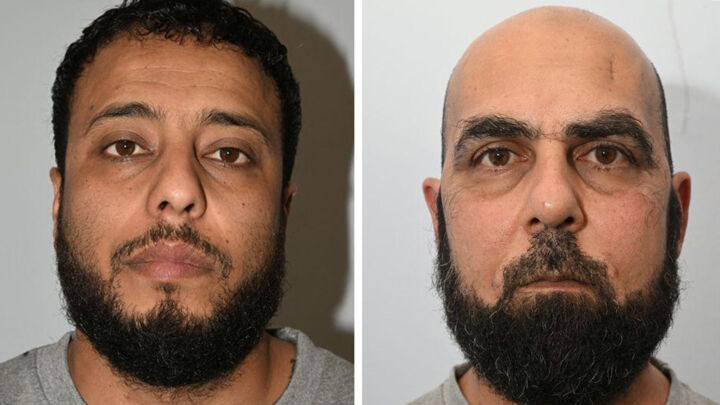Take it from a doctor, this assisted-dying bill is dangerous
Patients with complex needs deserve support, not encouragement to kill themselves.

Want unlimited, ad-free access? Become a spiked supporter.
I am an NHS consultant working in frontline medicine. My patient, Allan*, is 47 years old and has prostate cancer. He has suffered from alcoholism and substance abuse for much of his adult life, and is facing a custodial sentence. He has attempted suicide on four occasions. He has type-2 diabetes and a chronic lung condition, which makes it harder for him to breathe.
Ava, another patient, has stage-four breast cancer and is 21 weeks pregnant. She is facing eviction from her home, has an abusive partner and also a history of self-harm and anorexia nervosa.
Zain has head and neck cancer, Down’s syndrome, is non-verbal, has had substance-abuse issues and was sexually abused as a child.
Over the past few months, as the Terminally Ill Adults (End of Life) Bill has been debated in the UK parliament, I have thought about how the mere existence of a law permitting assisted suicide would impact on each of their lives. And the answer is, quite substantially. All of them would be eligible for assisted suicide under this bill. Should we really be offering them death as a solution to their challenges? And if we, as their clinicians, do so, will they just assume that ‘doctor knows best’ and accept?
Kim Leadbeater’s proposed assisted-dying legislation, which will be voted on in the Commons on Friday, assumes that the debate is simple – just give people the choice, she says. Politicians often assume that patients have an advanced illness in isolation from other conditions. The example most cited is someone with advanced cancer, with ‘less than six months to live’ and who wishes to die early. Or it’s assumed that they are all strong, independent people, like those appearing in the advertisements by the pressure group, Dignity in Dying.
Clinicians like me have been frustrated at the lack of understanding about the complexity our patients really face. Like Allan, Ava and Zain, they often live with multiple conditions and issues.
In the real world outside of Westminster, which I see daily in hospitals, outpatient clinics and in the community, the patients who might be eligible for an assisted suicide have multiple long-term illnesses and other morbidities simultaneously. I regularly see patients who have, say, stage-four cancer, but are also in a wheelchair, have had severe mental-health issues and have attempted to take their own lives multiple times, well before their cancer diagnosis. Often they live in poverty, are facing homelessness and feel devalued, due to a pre-existing disability.
What we have is a complex patchwork of patients with various, distinct needs, yet politicians are still debating assisted dying as though we can compartmentalise and separate these conditions neatly, quite separate from the patient. This is simply not the case.
Despite evidence from other areas of the world revealing the dangers of assisted suicide, our political class – seemingly to honour a promise to a celebrity – blunders ahead regardless. MPs are urged to pass the bill now and sort out the difficulties later. Clinicians like myself could only shake our heads as every amendment to this bill, that might have protected vulnerable groups – such as those with dementia or Down’s syndrome, or those suffering from eating disorders – was rejected.
There is a blinkered mentality among some who do not wish to see this issue in anything but simple terms. Establishing why patients might wish to take their own lives – working out whether an advanced cancer diagnosis really is the main trigger, and whether or not they might change their minds – will be hard, even for the most experienced clinicians.
This bill promises to make very difficult decisions much more straightforward and clear. But life is not so straightforward. The result of this simplistic thinking is a vague bill that leaves a huge number of unanswered questions. Those at the coalface of end-of-life care, like me, are deeply concerned by this.
Without very significant changes and improvements to the bill, we face the very real prospect of our patients being failed. The complex needs of those like Allan require a network of support. Instead, we will have physicians bringing up the possibility of suicide to those who are already suicidal. This bill must not pass.
*Names of patients have been changed in this article.
Professor Mark Taubert is a palliative-care consultant based in Cardiff.
You’ve hit your monthly free article limit.
Support spiked and get unlimited access.
Support spiked and get unlimited access
spiked is funded by readers like you. Only 0.1% of regular readers currently support us. If just 1% did, we could grow our team and step up the fight for free speech and democracy.
Become a spiked supporter and enjoy unlimited, ad-free access, bonus content and exclusive events – while helping to keep independent journalism alive.
Monthly support makes the biggest difference. Thank you.








Comments
Want to join the conversation?
Only spiked supporters and patrons, who donate regularly to us, can comment on our articles.